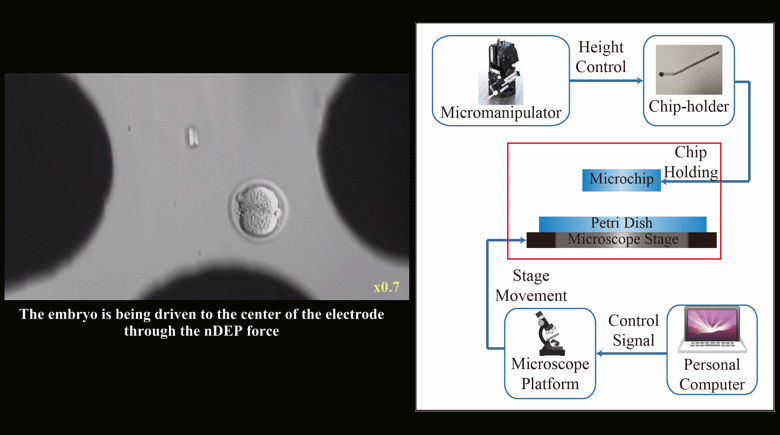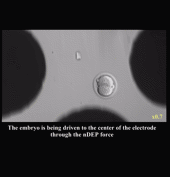
Translation and rotation of embryos are an important task in the biological field. Conventional pick-place techniques often require proper alignment to avoid causing damage to the embryo, and the tools have limited capability to orient the embryo being handled. This work aims to offer a novel and non-invasive technique to facilitate screening, sorting, and characterizing embryos lying on a glass slide or Petri dish.
A robotic nDEP-tweezers was developed in this work to enable easy manipulation of mouse embryos on a Petri dish. This system consists of a quadrupole electrode microchip that can generate an electric field to drive the embryo with the nDEP effect and a micromanipulation system to provide a 3D movement between the microchip and the embryos. Image processing techniques were employed to extract the position as well as the orientation of an embryo. A PID controller was adopted to precisely drag and rotate the embryo to the desired location with the required orientation. Experiments confirm that the system can successfully manipulate and rotate embryos with high precision and validate the effectiveness and robustness of the system.
This system offers a non-contact, low-cost, flexible, and effective method for embryo manipulation. In contrast to contact-based methods, the nDEP-tweezers can prevent the embryo from being adhered to the tool. The setup time can be greatly reduced as precise alignment is not required. In addition, the limitation of short traveling distance in dielectrophoresis can be resolved through the integration of a robotic manipulation system with the nDEP-tweezers.

